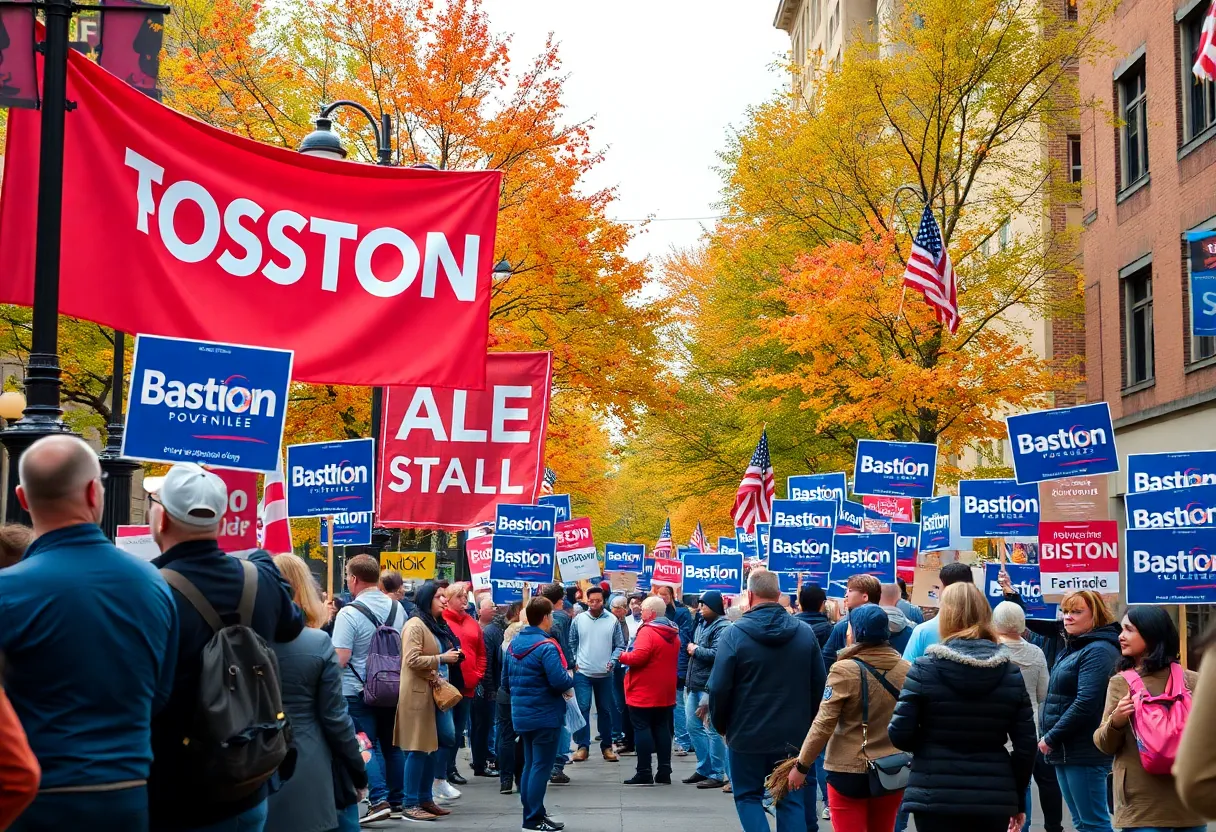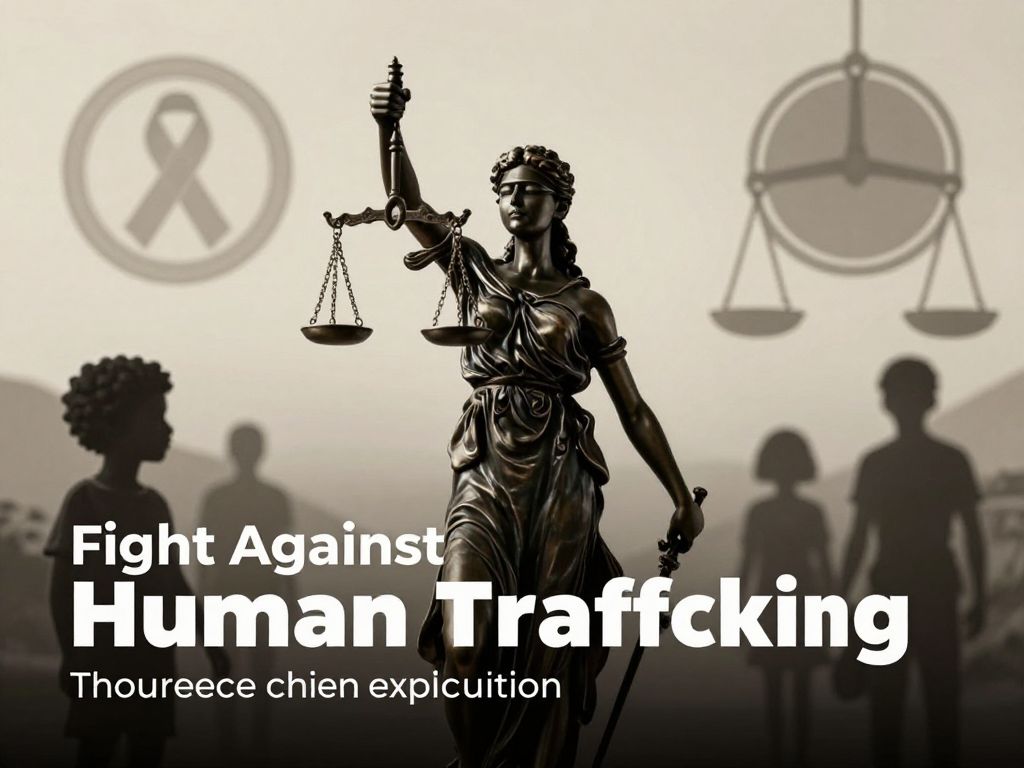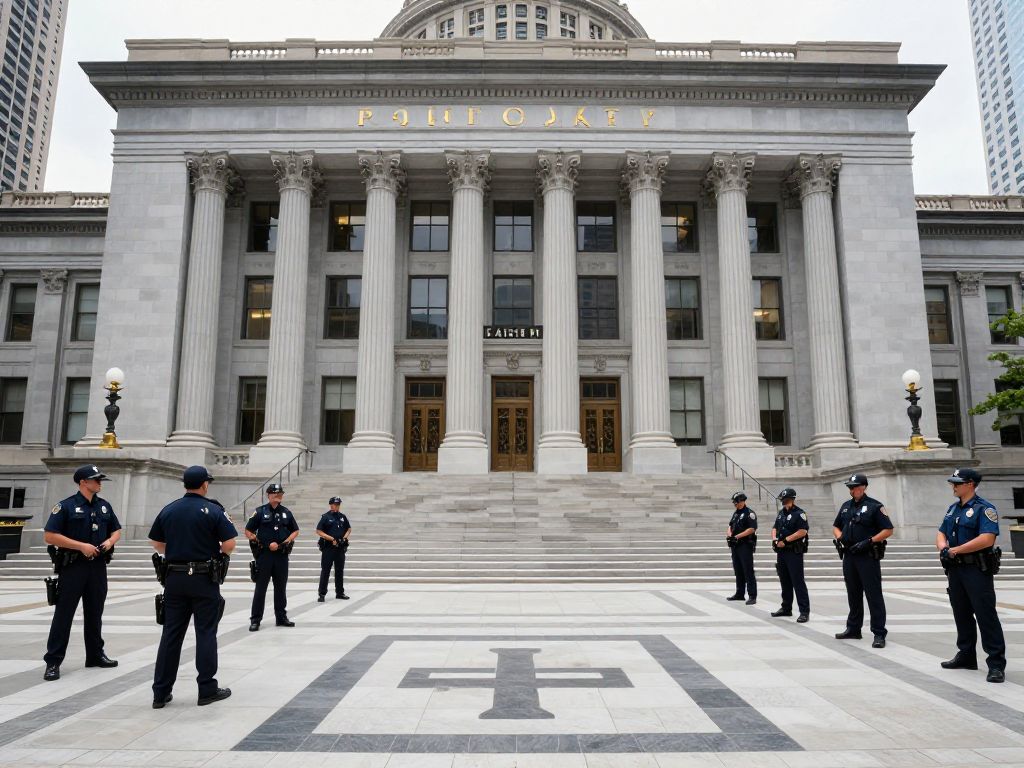News Summary
The Boston mayoral race intensifies as challenger Josh Kraft raises over $1 million since February, posing a major challenge to incumbent Michelle Wu. Kraft’s fundraising efforts, bolstered by a $2 million personal investment, allow him to close the cash gap with Wu, who boasts over $2.2 million. This election is shaping up to be one of Boston’s most expensive, with contrasting strategies and significant fundraising backing highlighting the candidates’ differing visions for the city’s future.
Boston – The Boston mayoral race is intensifying as challenger Josh Kraft has raised over $1 million since launching his campaign in February, signaling a significant challenge to incumbent Michelle Wu. As of late April, Kraft’s fundraising efforts have been buoyed by a $2 million personal investment, enabling him to close the financial gap that previously favored Wu, who had over $2.2 million in cash on hand at the same time.
Kraft’s campaign highlights strong out-of-town backing, with financial contributions coming from supporters across 19 states and Washington D.C. His fundraising strategy has resulted in nearly 1,500 donations, of which approximately 470 are from Boston residents, amounting to about $290,000 or 29% of his total contributions. In contrast, Wu has received nearly 7,000 donations, with about 2,800 (40%) of those from local residents generating approximately $360,000 (45% of her donations). These figures illustrate the candidates’ differing approaches to local grassroots support.
Both candidates report substantial numbers of maximum contributions, with Wu having 330 donors contributing the maximum allowed $1,000, whereas Kraft has attracted over 780 such donors despite having fewer total donations. This indicates a reliance on large donations within Kraft’s campaign, appealing to wealthier supporters. Significant supporters for Kraft include members of the Kraft family and prominent business figures in Boston, while Wu’s roster of donors features corporate executives from companies like JetBlue and Vertex Pharmaceuticals.
The 2024 mayoral race is poised to become one of the most expensive in Boston’s history, with both campaigns emphasizing their fundraising abilities and the influence of wealth in politics. A super PAC supporting Kraft has committed to spending $2.4 million on advertising, while Wu’s PAC has received contributions from the healthcare union, SEIU, which has endorsed her for reelection. Wu has publicly released her 2024 tax returns, which show a gross income of around $184,000 derived primarily from her salary as mayor, contrasting her financial situation with Kraft’s substantial personal funding of his campaign.
While Kraft seeks to portray himself as a committed local philanthropist who relocated to Boston in late 2023 and has worked with nonprofits, Wu has framed him as an outsider relying on family wealth to secure political office. She has criticized his $2 million personal investment as an attempt to “buy the election.” On the other hand, Kraft has expressed optimism about his campaign’s prospects and pointed out that Wu benefits from the advantages that come with incumbency.
The campaign has sparked discussions around key issues including housing, education, city budget management, transportation infrastructure, and approaches to homelessness. Wu advocates for reduced car dependency in Boston’s transportation policy, while Kraft emphasizes immediate improvements to road infrastructure—highlighting a fundamental divergence in their visions for the city’s future.
In addressing financial pressures facing residents, Wu has been critical of Kraft’s proposed budget cuts, suggesting they might exacerbate existing issues. The candidates have also debated their strategies for tackling drug use and homelessness in Boston; Kraft pushes for a “recovery first” approach while Wu has been recognized for her administration’s efforts in addressing homelessness.
As the campaign progresses, both candidates acknowledge the historic importance of this race and the heightened stakes it entails for Boston’s future. With the election still unfolding, voters are closely watching their contrasting backgrounds, funding strategies, and policy positions as the mayoral contest shapes up to be a pivotal moment in the city’s political landscape.
Deeper Dive: News & Info About This Topic
HERE Resources
Boston’s Higher Education Challenges Amid Demographic Shifts
Boston’s Mayoral Race Faces Controversy Over Super PAC Spending
Boston’s Shift Towards Vocational Education Amid Rising Costs
Massachusetts’ Operation Patriot Leads to Major Immigration Arrests
Boston Mayoral Race Intensifies Over Immigration and Infrastructure
DHS Identifies Over 500 ‘Lawless’ Sanctuary Jurisdictions in the US
Boston Housing Construction Slows Significantly
Boston Mayoral Forum Addresses Immigration Tensions
Super PAC Boosts Funding for Josh Kraft’s Mayoral Campaign
Boston Launches Comprehensive Summer Safety Plan
Additional Resources
- CBS News: Keller at Large – Michelle Wu & Josh Kraft
- Boston Globe: Boston Mayor’s Race Money – Wu & Kraft
- Boston Herald: Wu Releases Tax Forms – Kraft Yet to Disclose
- MassLive: Out of Town Money Floods Boston Mayor’s Race
- Boston 25 News: Mayoral Candidates Face Off in Second Debate
- Wikipedia: 2025 Boston Mayoral Election

Author: STAFF HERE BOSTON WRITER
The BOSTON STAFF WRITER represents the experienced team at HEREBoston.com, your go-to source for actionable local news and information in Boston, Suffolk County, and beyond. Specializing in "news you can use," we cover essential topics like product reviews for personal and business needs, local business directories, politics, real estate trends, neighborhood insights, and state news affecting the area—with deep expertise drawn from years of dedicated reporting and strong community input, including local press releases and business updates. We deliver top reporting on high-value events such as Boston Marathon, Head of the Charles Regatta, and Boston Harborfest. Our coverage extends to key organizations like the Greater Boston Chamber of Commerce and Associated Industries of Massachusetts, plus leading businesses in finance, biotech, and insurance that power the local economy such as Fidelity Investments, Biogen, and Liberty Mutual Insurance. As part of the broader HERE network, we provide comprehensive, credible insights into Massachusetts's dynamic landscape.





